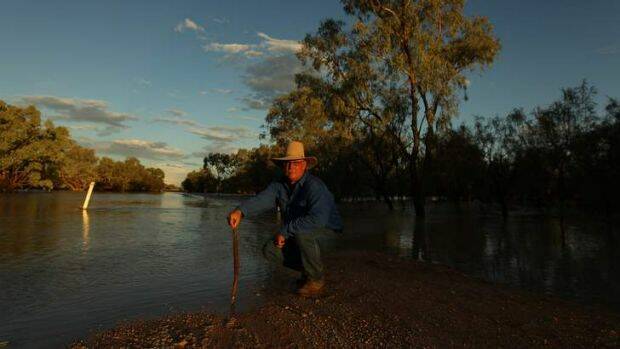The fixation on evaporation by the Murray Darling Basin Authority (MDBA) and state government authorities is becoming obstructive.
Subscribe now for unlimited access.
$0/
(min cost $0)
or signup to continue reading
A lot of finger pointing, buck passing and cost shifting is going on.
What we personally witnessed last year at Menindee, the Lower Darling and Broken Hill was very distressing. We observed a man-made drought.
Averaged evaporative losses are being used as the excuse for re-exposing those communities and their environments to exactly the same risks again.
How does releasing stored water resources onto already swollen systems save anything at all, including evaporation?

The water will eventually evaporate somewhere, it’s inevitable.
Our storage and regulatory systems, including Menindee, were built to conserve water in times of excess.
They weren’t built to tip stored water on top of high rivers.
The MDBA claims releasing water from Menindee Lakes, ahead of time, onto systems that don’t need it, saves it.
Evaporation is an integral and necessary part of the water cycle.
Most of us know when Lake Eyre is full we’re very likely to have a good season in south eastern Australia.
Just as well the MDBA isn’t devising complicated rules about ‘saving average evaporation’ there!
The Water Act 2007 and previous ‘water reform’ by the states all promised no negative impacts on communities. Even from the MDBA’s own review in the northern basin, there are clear negative impacts.
Job losses affect everyone including local aboriginal communities who have, in the past, supported rural and regional communities. Their job opportunities are ‘evaporating away’.
If our forefathers viewed evaporation under the current mindset, one of the wonders of the world, the Snowy Hydro Scheme, would never have been built. Our vibrant communities out here would not exist.
These days we have engineering and management strategies which don’t necessitate exposing whole communities and their environments to impractical legislation based on ‘saving losses’.
There are several practical and cost effective solutions for Menindee and the Lower Darling.
The whole mindset that sees authorities focusing on and arguing about volumes of water and ‘averages’, including evaporation, is regressive, impractical and unrealistic.
We need to focus on a workable plan that provides good outcomes for everyone: where people can live and prosper in their communities without the continual onslaught of poorly thought out, rigid policies based primarily on the premise that ‘someone misses out’ or ‘someone has to pay’.
Helen Dalton and Deb Buller talk irrigation, agriculture and all things water fortnightly in Friday’s Area News.
Head online to find more.
RELATED

